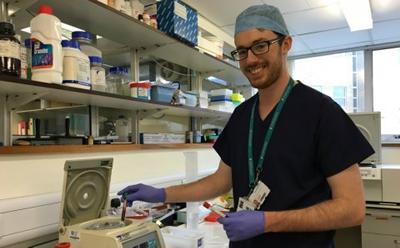What we've discovered so far

We've been hard at work investigating inflammatory bowel disease (IBD) in children, and have made a number of discoveries that provide new insights into the condition. Here's a few highlights of what we've found out so far.
Identifying potential new genetic causes
Whether it's a detrimental change in a single gene or the combined effect of a large number of changes across many genes, we've been investigating how a child's genetics influences their IBD.
We've identified new, previously unknown, genetic changes that could cause IBD in some patients. This work has been published in Gut, a leading scientific journal for gastroenterology.
Investigating the immune system
In children with IBD, the immune system attacks the gut. We've been looking into possible links between the immune system and genes associated with IBD.
We've shown that children with IBD are more likely to have other autoimmune conditions where the immune system attacks the body. Some children may therefore have a general problem with their immune system rather than a specific problem with their gut.
Overall, a third of the children we looked at had a second autoimmune condition, with particularly high rates of asthma. These findings were published in Inflammatory Bowel Disease, a leading journal for IBD research.
We have also reviewed results from studies investigating what effect on the immune system changes in genes have, and why they might lead to IBD. We found that few genes have been investigated in detail. More research is therefore needed to reveal the roles these genes play in the immune system in patients with IBD. This review is also published in Inflammatory Bowel Disease.
Analysing the role of gut bacteria
The bacteria naturally present in the gut, known as a person's microbiome, are thought to play a role in IBD. While the amount of data in this area has greatly increased over the last decade, interpreting it still remains a challenge.
In work published in Inflammatory Bowel Disease, we have provided an overview that doctors can use to understand microbiome research and interpret test results.
What causes Crohn's disease?
At least 115,000 people have Crohn's disease in the UK.1 Up to one third are young – less than 21 years old – when their condition is diagnosed.1 Children with Crohn’s disease can experience symptoms, such as diarrhoea, abdominal pain and tiredness, which result from inflammation in the gut, but it’s unclear what triggers this inflammation. Dr James Ashton, of the University of Southampton, aims to improve understanding of what causes Crohn’s disease. His work may one day lead to better treatments and improved quality of life for children and young people with this debilitating condition.
For more information please click here.